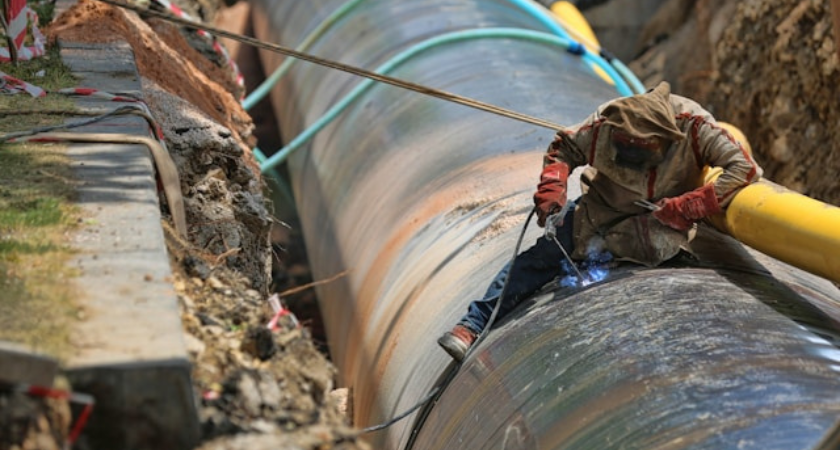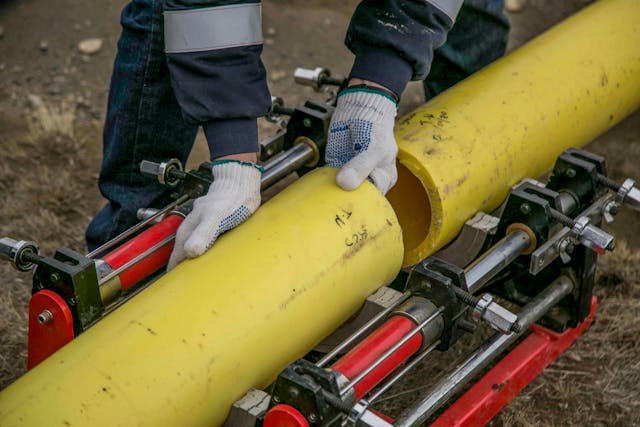
The U.S. government has formally authorized a major rerouting of Enbridge’s Line 5 pipeline in northern Wisconsin — a pivotal decision in one of the most closely watched energy infrastructure conflicts in the Great Lakes region.
The U.S. Army Corps of Engineers granted a federal Clean Water Act permit allowing Enbridge to build a 41-mile bypass around the Bad River Band of Lake Superior Chippewa reservation. The project is designed to relocate a section of Line 5 that has operated across tribal lands since the 1950s under easements that expired in 2013.

After years of negotiations failed, the Bad River Band sued Enbridge — arguing that operating without valid easements violated tribal sovereignty and placed culturally sacred and environmentally sensitive areas at risk.
A federal judge concurred, issuing an order that Enbridge must remove the pipeline from tribal lands by June 2026. The ruling put a hard deadline on finding an alternative path.
Line 5 currently transports up to 540,000 barrels per day of crude oil and natural gas liquids from Canada to refineries in the U.S. Midwest and Ontario. Its route passes through:
Environmental groups say even a minor leak could threaten drinking water for nearly 40 million people who depend on the Great Lakes.
The Army Corps permit follows years of environmental and tribal consultation. Key requirements include:
Mitigation MeasurePurposeWetland avoidance & restoration planReduce long-term habitat disturbanceWater quality monitoringEnsure compliance during constructionArchaeological surveys with tribal monitorsProtect sacred & cultural sitesEmergency spill response upgradesReduce risk to watershed and Lake Superior
The Army Corps noted the approval reflects federal trust obligations to Tribal Nations and compliance with NEPA, Clean Water Act, and historic preservation laws.
Although the federal approval is a milestone, Wisconsin state agencies are still reviewing:
Local opposition campaigns have intensified during the state review period.
The Bad River Band maintains that any reroute still threatens treaty rights, fisheries, and wild rice areas central to its culture and livelihood.
Environmental advocates argue this project:
1. Extends the lifespan of fossil fuel infrastructure
2. Encourages dependency on oil pipelines
3. Delays transition to renewable energy
4. Increases spill risk in ecologically fragile regions
Several lawsuits remain active — meaning construction could still face delays or shutdown orders.

Enbridge argues the reroute is the safest, most realistic solution and that shutting down Line 5 would disrupt regional energy supply chains.
The company highlights its economic contributions:
Supporters in government and industry call Line 5 critical infrastructure and emphasize that natural gas liquids transported through the line are used to produce propane relied on in rural areas for winter heating.
Line 5 is not just a state issue. It’s a Canada–U.S. treaty dispute:
Thus, the Wisconsin reroute represents one piece of a larger geopolitical battle over aging energy infrastructure.
The Army Corps’ decision signals federal support for keeping Line 5 operational — but it has not resolved core disagreements around sovereignty, environmental protection, and the future of fossil fuels in the Great Lakes region. The next year will be pivotal as legal deadlines approach and state regulators finalize their review.
Originally reported by Muflih Hidayat in Discovery Alert.